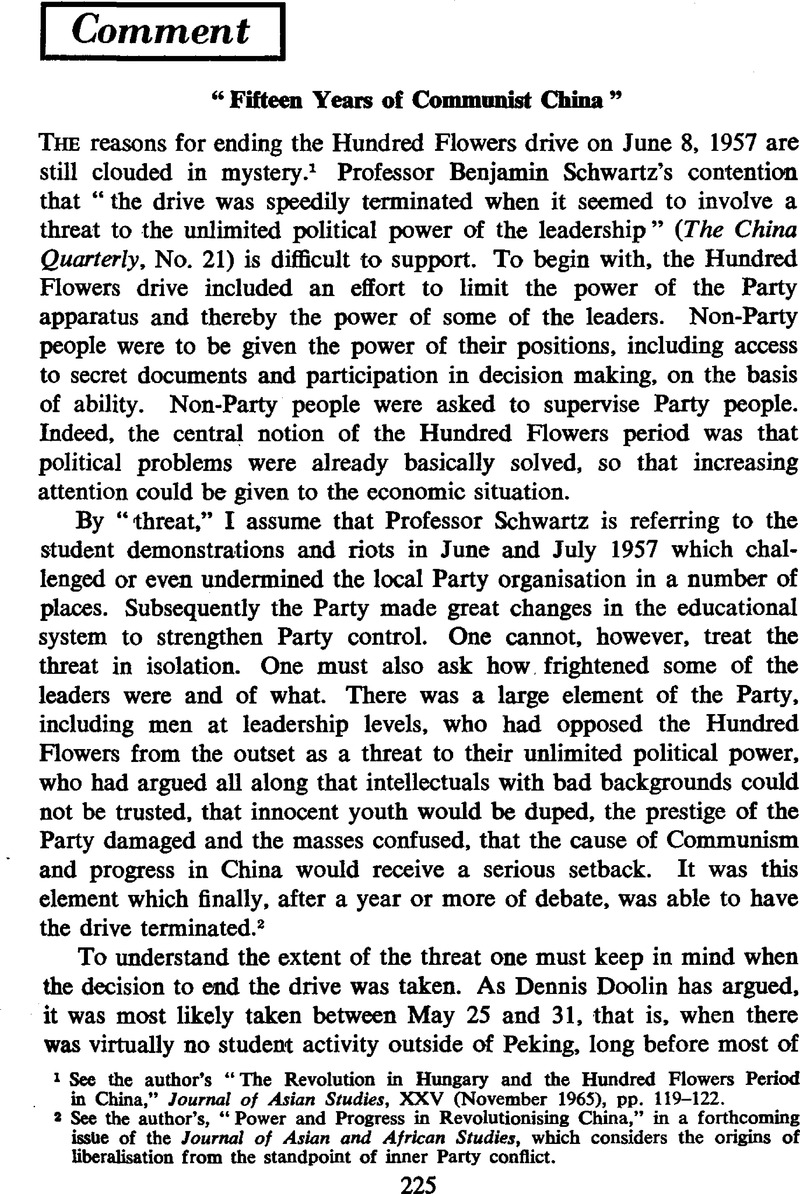No CrossRef data available.
Published online by Cambridge University Press: 17 February 2009

1 See the author's “The Revolution in Hungary and the Hundred Flowers Period in China,” Journal of Asian Studies, XXV (11 1965), pp. 119–122Google Scholar.
2 See the author's, “Power and Progress in Revolutionising China,” in a forthcoming issue of the Journal of Asian and African Studies, which considers the origins of liberalisation from the standpoint of inner Party conflict.
3 Foreign policy considerations have largely been overlooked. In 1957 China became increasingly involved in bloc policy. There was increased anxiety about revisionism in the bloc and revisionism was the charge against the Hundred Flowers critics. There was a new stress on one leader while the drive had been linked with the notion of many paths to socialism. The increased contact between Peking and Moscow may have led Peking to choose to follow Moscow's lead or to make a deal or to act in concert with Moscow. Shortly after Khrushchev called short the literary thaw in the U.S.S.R. in May 1957, Mao ended China's thaw. In July Khrushchev attacked and removed an anti-Party group; Mao did likewise. When Khrushchev attacked enemies of the Party who controlled the press and went on to remove so-called disloyal editors, the CCP did likewise.
4 Rene Goldman and Dennis Doolin have insisted that almost all the criticism was reformist in nature, accepting the basic framework of things and not a fundamental challenge. Merle Goldman finds little criticism in spring 1957 harsher than that of the second half of 1956. See Merle Goldman's forthcoming book, The Chinese Communist Parly and the Literary Critics; Doolin, Dennis, Communist China: The Politics of Student Opposition (Palo Alto: Stanford Un. Press, 1964)Google Scholar; Goldman, Rene, Book Review, Journal of Asian Studies, Vol. XXIV, No. 2, p. 325Google Scholar